REPAiR project leaders
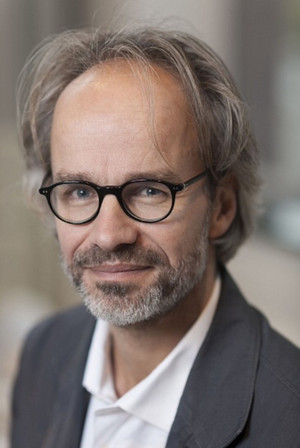
Arjan van Timmeren
Prof.dr.ir. Arjan van Timmeren (1969) is full professor at Delft University of Technology (TU Delft), Faculty of Architecture and the Built Environment, Department of Urbanism, chair ‘Environmental Technology & Design’ (https://www.tudelft.nl/en/architecture-and-the-built-environment/about-the-faculty/professors/profdrir-a-van-timmeren/).
Among other Eu projects, Prof. Van Timmeren is Principle Investigator and leading the REPAiR project (‘REsource Management in Peri-urban Areas: Going Beyond Urban Metabolism’). Find all about it on: http://h2020repair.eu.
Besides of this he is also Principle Investigator of the joint initiative by TUD (Delft), MIT (Boston) and WUR (Wageningen) ‘AMS Institute’ (Institute for ‘Advanced Metropolitan Solutions’), in Amsterdam together with public and private stakeholders and citizen(platforms). AMS Institute is a Knowledge institute with at the moment over 100 research projects and an approximate turnover of over 60M€ on projects related to circularity, mobility, resilience, data and intelligence and several other fields relevant for metropolitan areas from the perspective of sustainability and urban intelligence. Find out all about it on: https://www.ams-institute.org/urban-challenges/
Over the years his work has focused on the integration of the concept of sustainable development in the field of architecture, urbanism and building technology in both practice and academia, with lately emphasis on Circular Economy, Urban Metabolism, Urban Climate (Green-Blue systems) and Smart cities, and -citizens. He is project leader of many European and national research projects and publishes regularly on these. Arjan van Timmeren has seats in several (inter)national steering groups, quality teams, scientific boards and is lecturing all over the globe.
Please check ‘Ubikquity and the Illuminated City’ regarding his view on urban intelligence (https://issuu.com/laurencehenriquez/docs/ubikquity_and_the_illuminated_city) and his latest book and platform launched ‘Under Pressure: Water and the City’ regarding the specific theme of water (https://underpressure.online/ ).
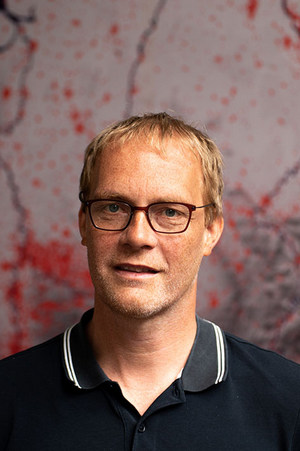
Alexander Wandl
Dr. Alexander Wandl is an Urbanist and Senior Researcher at the Chair of Environmental Technology and Design, at the Faculty of Architecture and the Built Environment, Delft University of Technology. His research focuses on developing sustainable urbanization, using an extended territorial metabolism approach and integrating (GIS-supported) methods and tools from different disciplines. As scientific coordinator of the Horizon 2020 financed research project REPAiR—Resource Management in peri-urban areas—he is at the forefront of developing spatial strategies, which support the transition towards more circularity. He specifically focuses on the challenges related to the sustainable development of dispersed urban areas and peri-urbanization processes in Europe.
REPAiR contributors (in alphabetical order)
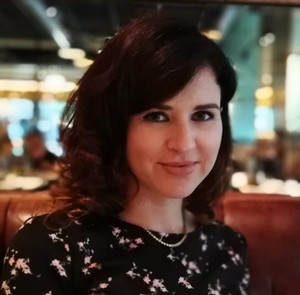
Libera Amenta
Libera Amenta is a Post-Doc Researcher in the DiARC at the University of Naples Federico II, Italy, where she teaches Urbanism in the “Laboratory of Urbanism” – at the master level – in the MAPA Course “Laurea Magistrale in Architettura Progettazione Architettonica”. She has been, until recently, also a Post-Doc Researcher in the Department of Urbanism at TU Delft, Chair of Environmental Technology and Design, in the Netherlands, where she taught Urbanism in the Course “Spatial Strategies for the Global Metropolis”. Since 2016, she has been carrying out research on topics regarding the circular regeneration of wastescapes as a member of the EU-funded Horizon 2020 REPAiR project (at UNINA and TU Delft) and other national and international research, as the H2020 project Urban_WINS and the Regional Project namely “Opportunità” for Veneto Region in Italy.
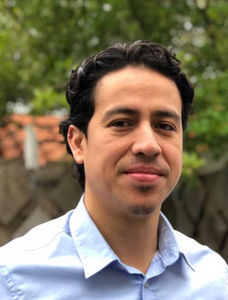
Gustavo Arciniegas
Gustavo Arciniegas (PhD) is an independent consultant with +10-years experience in collaborative GIS, Geodesign and sustainable spatial planning. His background is Geoinformatics and he holds a PhD degree in Map-based decision support tools for collaborative land use planning, VU University Amsterdam (2012). His research interests are Geodesign, Sustainable Development, and Planning Support Systems that include collaborative instruments (hardware and processware). He is the lead consultant and director of Geo-Col GIS and collaborative planning, a Netherlands-based consultancy firm/SME, which currently is a partner of the h2020 project consortium of REPAiR, which focuses integrating Geodesign, Life Cycle Analysis, Sustainability Assessments and Living Labs for improving metropolitan waste management in European cities. Gustavo is also currently involved in the H2020 research project FoodSHIFT2030 project (Food System Hubs Innovating towards Fast Transition by 2030: Citizen-driven transition of the European food system towards a low carbon, circular future), in the work package ‘WP2 Accelerating the Food Innovation Solutions’.
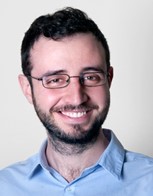
Alessandro Arlati
Alessandro Arlati possesses a M. Sc in Urban Planning and Policy Design accomplished through the Double Degree exchange programme between Politecnico di Milano and HafenCity University Hamburg in 2018. Currently he is research assistant at the Department of Urban planning and regional development at the HafenCity University Hamburg. His research interests include stakeholders and governance analysis to explore decision-making processes. He has experience in stakeholders mapping, multi-level governance analysis and decision-making in decisional processes within the field of Circular Economy. He works with concepts such as Urban Living Lab, Urban Metabolism, Geographic Information System and Life Cycle Assessment as tools and methods to inform decision-making. Further, he works with the Nature-based Solution concept and how this can be co-created as a tool for urban regeneration.
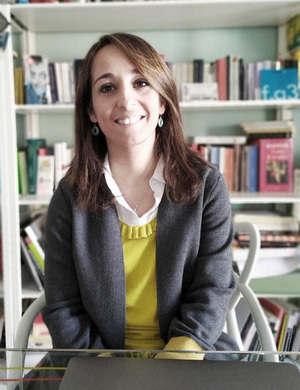
Anna Attademo
Anna Attademo, a PhD in Urban and Territorial Planning, is a Post-Doc Researcher in the DiARC at the University of Naples Federico II, Italy, where she teaches Urban Planning in the Bachelor Course “Sustainable Development and Territorial Networks”. Since 2016, she is a member of the EU-funded Horizon 2020 REPAiR project. She has participated in international conferences and published in scientific journals, working on the themes of the circular economy and the regeneration of peri-urban areas, also through the active involvement of local communities. She co-edited the volume “Fringe Shifts. Transforming Planning for New Suburban Habitats”, based on her research within URBACT III project “Sub>urban. Reinventing the fringe”, for increasing social and urban resilience within peri-urban fringes (2015-2018).
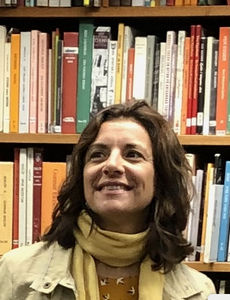
Gilda Berruti
gberruti@unina.it
Gilda Berruti, architect and PhD, is an Assistant Professor of Urban Planning at the Federico II University of Naples. Her research interests include public spaces between urban form and social dimension, inclusive urban policies and plans, the sustainable city as an aspect of the new urban question. Recently, she is investigating the relationship between planning rules and urban informalities.
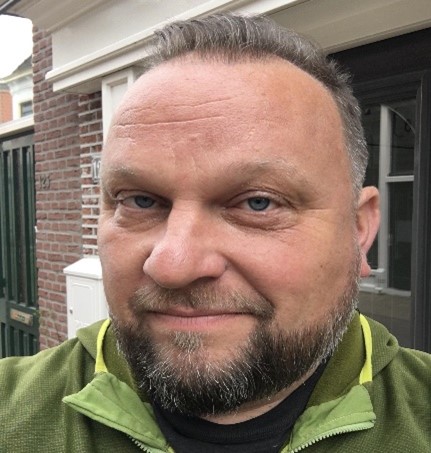
Olaf J. Blaauw
Olaf Blaauw is a systems thinker and implementer in the field of the circular or doughnut economy. Originally trained as a biologist and medicinal chemist at Leiden University, his central paradigm consists of the notion that economy equals ecology. The most relevant changes required for a circular economy to work are accepting that we cycle the value attributed to the functional quality of goods, not so much their constituent materials. Allowing materials and functional value to persist beyond intended use cycles therefore becomes dependent on Total Cost of Use based accounting, as much as it is on design for reassembly. Olaf has been instrumental in setting up the “Valley, Circular Hotbed for the Netherland” project with Park 20|20 developers Delta Development and Cradle to Cradle co-founder William McDonough. He has been actively supporting the Taiwanese transition to a circular economy since 2013, working with (local) governments and the Taiwan Sugar Company. Currently, Olaf acts as Program Director Circular Economy for Brainport Smart District, a circular urban development in Helmond, the Netherlands.
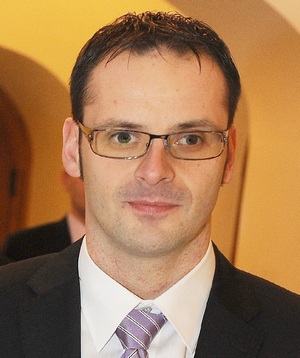
Denis Cerić
d.ceric@twarda.pan.pl
Denis Cerić is a PhD candidate and assistant at the Department of Urban and Population Studies, Institute of Geography and Spatial Organisation, Polish Academy of Sciences. His broad research interest is tourism geography, international cooperation and cross-border studies. Within the REPAiR project, Denis Cerić is a coordinator of the dissemination and exploitation activities of the consortium.
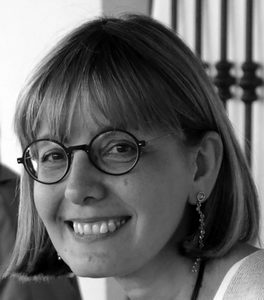
Maria Cerreta
Architect, PhD in “Evaluation Methods for the Integrated Conservation of Architecture, Urban and Environmental Heritage”, she is associate professor of Environmental Assessment and Evaluation at the Department of Architecture (DiARC), University of Naples “Federico II”, Italy. Coordinator of the Second Level Master in “Sustainable Planning and Design of Port Areas” and Director of the Advanced Course in “Real Estate Market and Urban Regeneration (MIRU)”, and Associate Professor at CNR-IRISS since 2019. She carries out research in the fields of appraisal and multidimensional evaluations in hybrid, collaborative and interactive decision-making contexts for urban design and spatial planning, enhancement of cultural heritage and landscape, urban regeneration and spatial transformations, integrating methods and tools specific to economic, multi-criteria and multi-group evaluations.

Tom Claeys
tom.claeys@ivago.be
After graduating in 2004 as political scientist, Tom Claeys has taken on several management and consulting roles for the public and retail sector. Since January 2017 he is working as manager Strategy, Development and Waste flow management for IVAGO. IVAGO is the intercommunal association responsible for the waste management in Ghent and Destelbergen. Tom Claeys’ department is responsible for IT, Infrastructure (including for the civic amenity sites), Strategy&innovation, Routing and waste flow management.
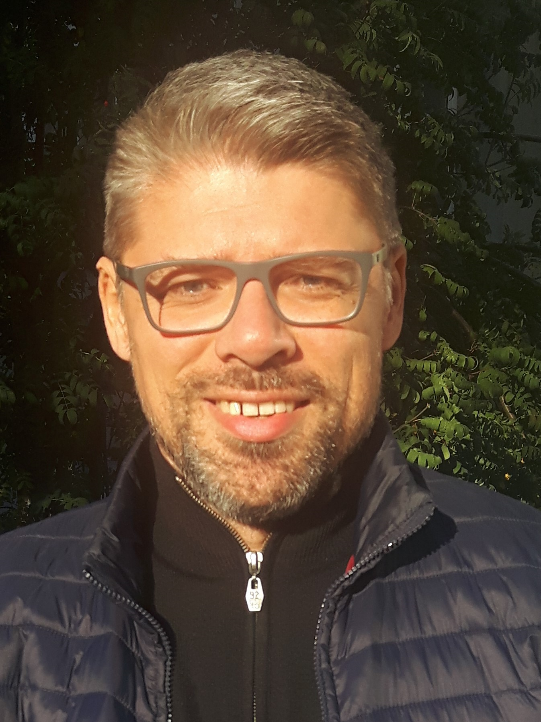
Konrad Czapiewski
Konrad Czapiewski is an Associate Professor at the Department of Rural Geography and Local Development, Institute of Geography and Spatial Organisation – Polish Academy of Sciences. His broad research interest is human geography and particularly rural geography. He obtain the PhD academic degree in 2010 and habilitation academic degree in 2021. Since 2003 he is an active member of the Main Board of Polish Geographical Society (six terms) and its Commission for Rural Areas and since 2019 member of Main Board of Committee for Spatial Economy and Regional Planning, Polish Academy of Sciences. Since 2013 he is an editor-in-chief journal Studia Obszarów Wiejskich (Rural Studies). He is author of 114 publications (35% in English), he participated in 57 projects (including H2020, FP7, ESPON, World Bank, NCN, Erasmus+, Polish Ministries and regions) and gave 120 conferences’ presentations (including 25 as a guest speaker and 75 in English).
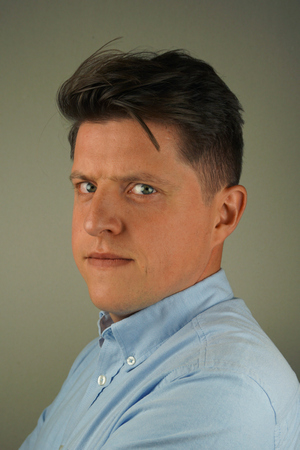
Marcin Dąbrowski
Dr. Marcin Dąbrowski is an assistant professor at the Section of Spatial Planning and Strategy in the Department of Urbanism, Faculty of Architecture and the Built Environment, Delft University of Technology, where he conducts research and teaches in the fields of spatial planning and territorial governance. He has a background in political science and regional studies, however, his research interest spans across many topics related to the governance of territory, from regional and urban strategies to circular economy, or energy transition, to regional development policies, urban climate change adaptation, integration of planning with flood risk management, stakeholder engagement in planning, spatial justice and the evolution of spatial planning systems in Europe. He has also published extensively on various aspects of EU Cohesion Policy, on aspects ranging from its governance to its impacts on the citizens’ identification with the EU.
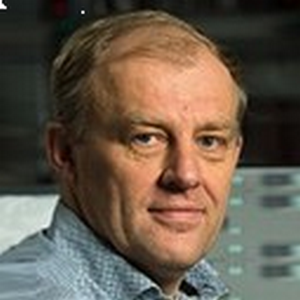
Jo Dewulf
Jo Dewulf works with the Department of Green Chemistry and Technology, GhentUniversity, Belgium. He leads the Sustainabile Systems Engineering group andfocuses on clean production with a team that consists at the moment of about 20-25 doctoral and postdoctoral researchers, and 10-15 master students.
After engineering studies (maxima cum laude, 1992) and PhD (maxima cum laude, 1997) at Ghent University and post-doc research both at Ghent University and DelftUniversity of Technology, he became assistant professor (2003), associateprofessor (2007) and full professor (2012) Clean Technology at Ghent University.
He was onleave for two years from his full professor position to join the EuropeanCommission – Joint Research Centre as senior scientist in the Sustainability Assessment Unit (2013-2015). He was guest professor at ETH Zürich with theEcological Systems Design group (2019-2020). For hisscientific work, he obtained the prize of the laureate of the Royal Academy of Sciences and Arts of Belgium in 2008.
In hisresearch, he heavily focuses on clean technology, i.e. searching for preventiveactions within production processes and values chains. To do so, he makesthorough analyses at the process, plant and overall industrial system level,based on life cycle thinking and thermodynamic principles in order to find outopportunities for improvement.

Enrico Formato
e.formato@unina.it
Enrico Formato is Researcher in Urbanism at the Department of Architecture, Federico II University of Naples (Italy). His research interests include: public spaces and urban fringe regeneration and design, illegal settlements recovery, especially with reference to vulnerable environments. He developed municipal masterplans for national entities and participated in national and international conferences and scientific group of researches (among them, TAMC.lab – Illegal settlements in Southern Italy, research that he coordinates).
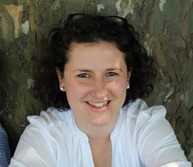
Cecilia Furlan
Antwerpen University of Antwerp
c.furlan@tudelft.nl
cecilia.furlan@uantwerpen.be
Cecilia Furlan is an architect, urbanist. Currently she is a post-doctoral researcher at the Department of Urbanism, Delft University of Technology and a research fellow at the University of Antwerp. Cecilia’s interest focuses on urban design and urban planning strategies towards sustainability, circularity and mapping. In particular, on sustainable urban development under conditions of resource scarcity. She believes in mapping as a tool of inquiry the actual urban landscape questions. Over the past years, she worked and taught in different architecture and urbanism schools across Europe.
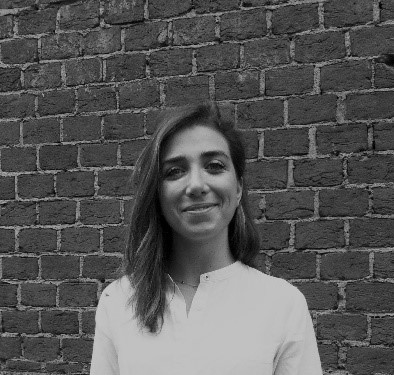
Francesca Garzilli
francesca.garzilli@unina.it;
francesca.garzilli@gmail.com
Francesca Garzilli is an Architect with a degree from Federico II. After the degree she spent one year in Paris, where she worked at Michel Desvigne Paysagiste office (MDP).
Since January 2018, she is a PhD candidate in the field of Landscape and Urban Planning at University of Naples Federico II, addressing an appropriate landscape approach to design the peri-urban territories. Within this time, she contributed to the European research project REPAiR for the pilot case of Naples, particularly contributing to the Eco-Innovative Solutions study. She has been a visiting scholar at the Department of Landscape Architecture at the University of Pennsylvania (UPenn). During this period of research has attended courses, has been a Teaching assistant in a landscape architecture studio, and has been invited as a jury in several landscape architecture studios.
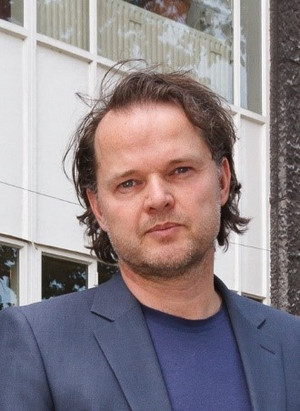
Bob Geldermanns
Bob Geldermanns’ background is in Industrial Ecology and Sustainable Architecture. His doctoral thesis, titled ‘Securing Healthy Circular Material Flows in the Built Environment’, focuses on architectural design, materialization, and operation in relation to spatial distribution of material flows. Currently, Bob is affiliated with the Department of Architectural Engineering + Technology as a researcher, and with the Department of Campus Real Estate as Circularity consultant. Furthermore, he is closely involved in the interdisciplinary Circular Built Environment (CBE) Hub at Delft University of Technology. In the past, he has worked for, amongst others, the Amsterdam Institute for Advanced Metropolitan Solutions, Circular City Program, and for the Dutch Ministry of Economic Affairs, Climate & Energy Program.
Within the REPAiR project, Bob Geldermanns is a leader of Work Package 3 on ‘Developing and Implementing Territorial Metabolism Based Representation and Process Models’ and member of the Executive Board.
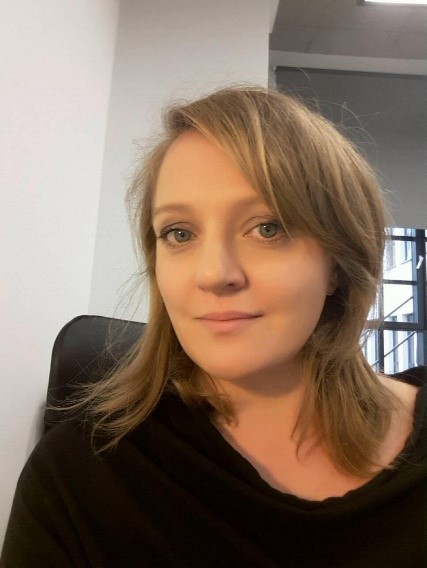
Małgorzata Grodzicka-Kowalczyk
Małgorzata is an architect, urban planner, co-founder of PHENO HORIZON, she has over 20 years of experience in spatial planning, creating urban development strategies and working on urban projects and concepts. At work, she puts a strong emphasis on the involvement of the local community, she is a consultant for spatial planning, cooperating with municipalities all over the country as part of a government project. She is a graduate of the Lodz University of Technology, currently (totally inspired by the activities of the REPAiR project!) at the University of Lodz, she conducts research on the possibilities of implementing a circular economy in the revitalization of Polish cities.
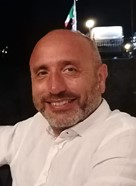
Giuseppe Guida
Giuseppe Guida is PhD in Territorial and Urban Planning and currently Researcher in Urban Planning at the University of Campania Luigi Vanvitelli, Department of Architecture and Industrial Design, where he teaches Urban Planning. His research activities are mostly focused on metropolitan areas, periurban and landscape urbanism. On these issues he is author of numerous books, scientific articles and chapters in books. He is a consultant to public bodies on the issues of urban design, urban regeneration and ecological urbanism.
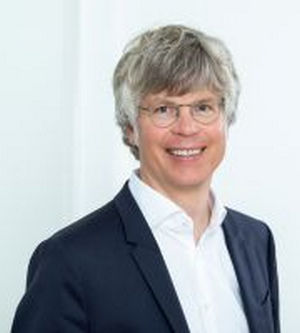
Jens-Martin Gutsche
Jens-Martin Gutsche is an urban planner and co-owner of Gertz Gutsche Rümenapp – Stadtentwicklung und Mobilität (GGR), a consulting firm located in Hamburg and Berlin. He holds a PhD of Hamburg Technical University. His research and consulting activities focus on urban and regional development, settlement structures as well as the fiscal effects of public planning. Together with Max Bohnet he is leader of work package 2 of the REPAiR project, which has developed the Geodesign decision support environment (GDSE), an online-tool for the co-creation and co-evaluation of eco-innovative solutions and strategies for the CE transitions, using the input from all other project work packages.
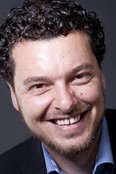
Erwin Heurkens
Dr. Erwin Heurkens MSc. is an assistant professor in Urban Development Management (TU Delft). His research expertise involves public-private partnerships for sustainable urban development. Current research centres around ‘sustainable private sector-led urban development projects’, investigating the role market actors (e.g. property developers, investors and owners) play in making our buildings, places and cities more sustainable. As such, he aims to understand the business decision-making logics and strategic drivers for developing and investing in sustainable projects, and the role public planning authorities play in regulating and stimulating such sustainable market behaviour. Erwin has wide experience in international comparative research, mainly in Anglo-Saxon countries such as the UK, US, Hong Kong and Australia. He participates in funded academic research projects on the governance of circular economy transitions in the built environment. Also he conducts professional research for Dutch Ministries, municipalities and companies on innovative forms of partnerships, management and finance for urban redevelopment. Erwin is the co-editor of two international books on real estate development.
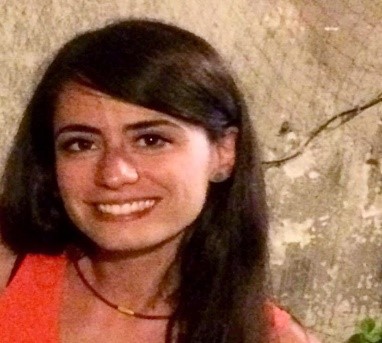
Silvia Iodice
Silvia Iodice is Architect and Ph.D. in Urban Planning and Evaluation at the Department of Architecture of the University of Naples ‘Federico II’. In 2020 she joined the Joint Research Centre (JRC) of the European Commission, where she works as urban analyst and researcher at the Territorial Development Unit, with the aim to support the urban and territorial dimension of European policies. Her research activities deal with Life Cycle Assessment, Urban Metabolism evaluation methods, and Ecosystem Services. She also deals with Multi-Criteria Decision Analysis integrated with Geographic Information Systems for the development of Spatial Decision Support Systems, using ecological, economic and social indicators for the enhancement of cultural and natural heritage.
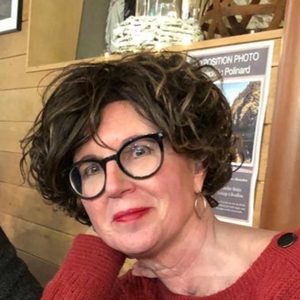
Eveline Jonkhoff
Eveline Jonkhoff studied Biology at the University of Amsterdam with specialisations on Environment & Society, toxicology and environmental legislation. She started her career at the City of Amsterdam in the field of waste-to-energy and sustainable development as project-leader, advisor and marketing manager. Since 2008 she worked as strategic advisor on sustainable development. And as a logical next step since 2013 with a main focus on circular economy.
She is responsible for the Amsterdam Circular Economy program which started in 2015 with an in depth research into the potential of a circular economy. Amsterdam was awarded the World Smart City Award in 2017 based on the integrated strategy and program on circular economy.
Recently the city launched the new integrated 5 year strategy Amsterdam Circular and the first City Portrait showing the local and global impact of the city on environment and society. Both the strategy and the city portrait are based on the Doughnut Economy.
From 2017 to 2019 Eveline Jonkhoff was also chairing the Eurocities task force on circular economy.
https://www.amsterdam.nl/en/policy/sustainability/circular-economy/
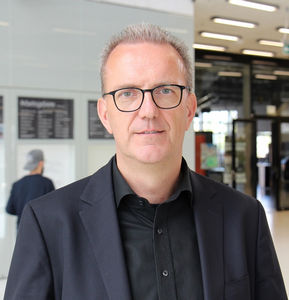
Jörg Knieling
Jörg Knieling heads the Institute of Urban Planning and Regional Development at HafenCity University Hamburg (HCU), Germany, with a team of about 15 scientists. His academic background is in urban, regional and environmental planning, and in political sciences and sociology, he holds a Ph.D. from the University of Hanover. He is member of the German Academy for Territorial Development in the Leibniz Association (ARL) and the Advisory Board of the German Federal Ministry of Territorial Development, and was ‘Directeur d’Etudes Associé’ of the Institute of Advanced Studies (IEA) in Paris and Visiting Professor at the Politecnico di Milano. Further information: https://www.hcu-hamburg.de/en/master/urban-planning/arbeitsgebiete/joerg-knieling/
The institute’s main research fields are sustainable urban and regional development, climate change and territorial innovation, and related aspects of (transition) governance and planning theory. A focus has been set on the concept of territorial circularity (‘circular city’) studying different flows, e.g. land-use, energy, waste and food. The institute has been participating in numerous international and national research projects, recently e.g. REPAIR, FORCE, Cities-4-People, mySMARTLife and CLEVER Cities under the HORIZON 2020 framework and the German Excellence Cluster CLICCS on climate change. Current book publications have been on Pathways to Great Transformation (2017), Climate Adaptation Governance (2016), Cities in Crisis (2016), and Soft Spaces in Europe (2015).
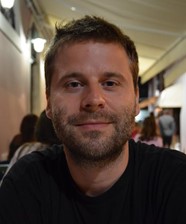
Maciej Kowalczyk
Maciej Kowalczyk is a sociologist, co-founder of PHENO HORIZON, he has experience in cooperation with local governments from all over the country – in particular in creating development strategies, building territorial brands, and working on investment projects. He is the initiator of partnerships and cooperation projects between local governments. Currently, his goal is to support Polish cities in preparing for development challenges – including providing them with real tools for the implementation of the sustainable development policy and the implementation of circular economy solutions.
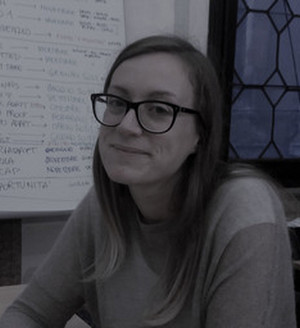
Giulia Lucertini
Giulia Lucertini, PhD., is a planner and researcher at the Iuav University of Venice, and associated researcher at FEEM. Since 2013 she works at the Climate Change Lab as an expert in resilient spatial planning, evaluation, and analysis of public policies. In last year her main research interests are about the circular economy and urban metabolism linked to land use planning for more sustainable and regenerative exploitation and consumption of natural resources. She is mainly focused on the assessment and construction of projects and strategies for urban and rural development (in their interaction and dependence) with particular attention to local food policies and more generally local agriculture. She has been involved in many research projects, national and international, that explored different aspects of resilience, planning and use of resources.

Chiara Mazzarella
Chiara Mazzarella is an Architect, graduated at the University of RomaTre (2013) and II level International Master Degree in Architettura | Storia | Progetto between RomaTre and ETSA of Valladolid (2014). After working in architectural offices in Chile and Italy, she is currently a PhD researcher in Evaluation and Urbanism at the Department of Architecture of Naples and a guest PhD at TU Delft. Her research has been correlated to REPAiR, deepening the subject of wastescapes regeneration, with an inter-disciplinary and multi-scalar approach to evaluating urban metabolism and wasted architectures, studied as resources for circular cities. In REPAiR, Chiara developed the activity-based spatial material flow analysis of the Naples case and the implementation and tests of the GDSE platform.
Complementary to academic study, she writes for Sonar magazine and collaborates with Colla (Collaborative in Learning and Action).
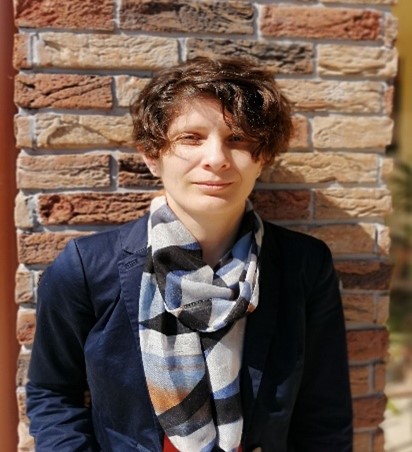
Cecília Mezei
mezei.cecilia@krtk.hu
Cecília Mezei is an associate professor at the Hungarian University of Agriculture and Life Sciences (MATE), Institute of Sustainable Development and Farming, Department for Bionomy. She is a senior research fellow at KRTK Institute for Regional Studies. She is an economist with a PhD degree in regional sciences. Her research areas are governance, regional development, circular economy, waste and water management. She has practices in the public service management and the consulting sector, too.
In the REPAiR project, Cecília is a member of the Hungarian Team and deals with the Pécs Case and the governance questions.
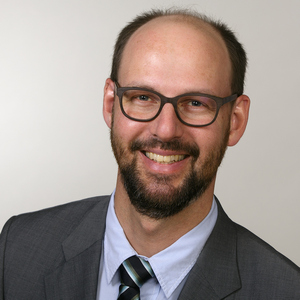
Andreas Obersteg
Andreas Obersteg (Dipl.-Geogr.) is Research Associate at the department of Urban Planning and Regional Development at HafenCity University Hamburg. He graduated in economic and social geography with minor subjects in spatial planning, regional development and business administration at TU Munich and University Tours (France). His research is comprised of several European projects on city-regional development and governance, urban-rural partnerships and circularity in city regions.
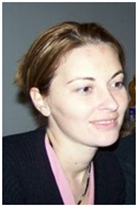
Orsolya Oppe
Orsolya Oppe holds a degree in Political Science and Italian Language and Literature. She is a PhD candidate and was a research assistant at the KRTK Institute for Regional Studies of Pécs. Her research interests are regionalism and regional parties in Italy, autonomy and territorial policy. She did some research and translation regarding the administrative and legal regulations of the Campania region. Within the REPAiR project, Orsolya Oppe collaborated with Viktor Varjú and Cecilia Mezei in the pilot case of Naples focusing on the decision-making processes and the stakeholder identification of the Metropolitan City.

Ágnes Óvári
ovari.agnes@krtk.hu
Ágnes has a degree in environmental engineering. Over the past 20 years, she has gained extensive experience working in various fields of environmental protection. She is currently a PhD candidate on urban climate change at the University of Pécs and a junior research fellow at the KRTK Institute for Regional Studies of Pécs. Ágnes joined the REPAiR project in 2020 as part of the Pécs team, mainly responsible for Life Cycle Assessment and for sustainability assessment.
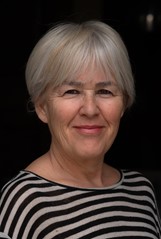
Maria Federica Palestino
palestin@unina.it
Maria Federica Palestino is an architect and associate professor of Urban Planning. She holds PhD in “Evaluation Methods for integrated conservation of Architectural, Urban and Environmental Heritage”.
Member of the Scientific board of the Doctoral Program in Architecture at Federico II University of Naples. Responsible of the Public Engagement Policy of UNINA for the Department of Architecture.
According to national and international research projects, teaching experimentations and professional consulting, she is expert in participatory methods aimed to involve stakeholders in urban regeneration policies regarding contemporary city.
Her primary research interest is the strategic role of cultures, creativity and images in regeneration processes and polices, with a specific focus on the social construction of urban plans and programs. According with the theoretical framework of Urban Political Ecology, in her latest research projects she is experiencing the empowerment of fragile communities and places, in order to recover from socio-ecological decline.
On these themes she has published and edited books as well as journal articles and chapters, both at a national and an international level.
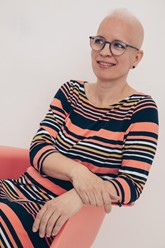
Britta Peters
Britta Peters (F) holds a Master of Science in European Urbanism from Bauhaus University and a Dipl. Ing. (FH) in Architecture from Hamburg University of Applied Sciences, major: urban planning and urban renewal. Since mid 2017, Britta works in SRH’s innovation unit, whose section head she is since March 2019 and is responsible for several national and European research projects. Britta’s other responsibilities at SRH include international knowledge transfer and the establishment of a structured innovation management system.
Before joining SRH, Britta worked as Human Settlements Officer for the United Nations Human Settlements Programme (UN-Habitat) and as Urban Planning Advisor for the German Development Service (DED, today part of GIZ) and was responsible for managing several urban development projects in the field of solid waste management, urban planning, job creation and vocational training, land management, infrastructure development and place making. Citizen mobilisation, awareness raising, capacity building and participatory planning processes have always been an integral part of her work, which centres around cities and urban neighbourhoods.
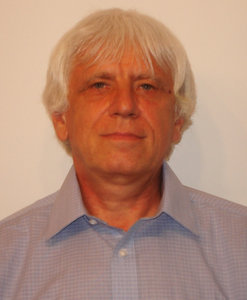
István Pomázi
István Pomázi, private professor at the Loránd Eötvös University (Budapest), former chief adviser of the Ministry for National Economy and Ministry for Environment. He holds master’s degree in geography, PhD and habilitation in Earth Sciences. His main research fields are OECD, EU and Hungarian environmental policy, strategic planning, measuring environmental and social progress, transition to circular economy and sustainability.
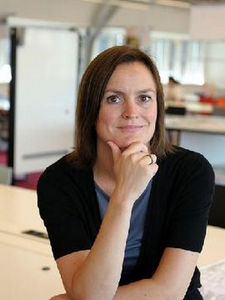
Hilde Remøy
Hilde Remøy is an associate professor at the Delft University of Technology, Faculty of Architecture, Department of Management in the Built Environment (TU Delft). She is a board member and past president of the European Real Estate Society (ERES). Hilde is experienced in international and Dutch scientific and practice research and is an editorial board member of several international journals. Hilde teaches adaptive reuse and redesign of processes at TU Delft and other education institutes. Her work concentrates on resilience and adaptive reuse of real estate, including heritage, specifically focusing on adaptability and value development. In the REPAiR project, Hilde is the leader for the Amsterdam Peri-Urban Living Lab and member of the executive board.
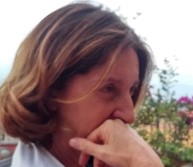
Marina Rigillo
mrigillo@unina.it
Marina Rigillo is Associate professor, PhD in Technology at the Department of Architecture, University of Naples Federico II, Italy. The specific of her scientific field of study is the ecological design approach, focusing on the topics of climate adaptation and of technologies and processes for improving circularity within the construction sector. Special attention has been given to the regeneration of urban soils, both polluted and impervious. She has participated in several EU research projects (Life, Horizon 2020, Asia Switch), also as coordinator of the national party (EU-AID, Interreg). She is a Board member of the Federico II Interdepartmental Center for Environmental Research (CIRAM), and is an Associate Researcher of the CNR-Iriss. She is also a member of the Technical Table of the Italian General States of the Green Economy, and of the Interdisciplinary National Committee on Waste and Health (CIRS).
She is in the Editorial Board of Techne, Journal of Technology for Architecture and Environment, and Detritus, Multidisciplinary journal for Waste Resources and Residues.
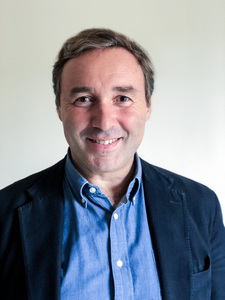
Michelangelo Russo
russomic@unina.it
Michelangelo Russo is full Professor of Urban Planning and Dean of the Department of Architecture at the University of Naples Federico II. He is carrying out financed researches of national and international interest. His research activities, design-oriented, deal with the themes, the knowledge and the phenomena of urban design in relation to the changes of the contemporary cities, urbanized areas, landscapes, and the complex interaction between environment, space and ecology. Russo coordinates the Research Unit of Naples of the international network in the project REPAiR (Horizon 2020).
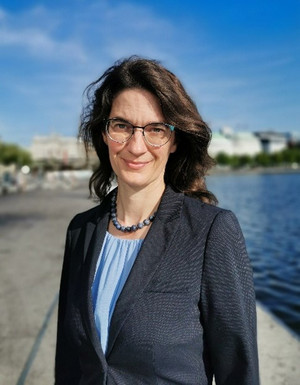
Sabine Schubbe
Sabine Schubbe holds an Engineering Degree in Landscape Architecture (University of Applied Science Osnabrück) and an Engineering Degree in Urban Development (Technical University Hamburg). Currently she is employed in the Department for European Affairs for the Senate Chancellery of the Free and Hanseatic City of Hamburg.
She is German vice-chair and Hamburg representative in the National Board of the Interreg North Sea Region Programme. In this function she cares for the thematic programming and advises and accompanies approved and potential beneficiaries during a project life cycle. For the City of Hamburg she develops and supervises EU-funded projects within the framework of Horizon.

Maria Somma
Maria Somma is a planner and has a master’s degree in Urbanism and Landscape planning. Graduated in 2018 at the University of Naples ‘Federico II’ (Italy), she completed in 2019 the Master in “Forensic Planning”. She has participated in numerous training courses to use GIS in planning processes at UAB in Barcelona and ESRI. She joins the REPAiR project as an expert in Geographic Information Systems (GIS) to support spatial analysis, evaluation, and planning. She is currently a PhD candidate in Urban Planning and Evaluation at the University of Naples and a guest PhD at TUDelft University. Her main research interests are in GIS data science, urban regeneration and multi-criteria assessments. Her research is looking at the regeneration of wastescapes of road infrastructure through an approach oriented to protecting ecosystem services and landscape in general. She crosses the decision support tools to spatial analysis through the methodology of Geodesign.
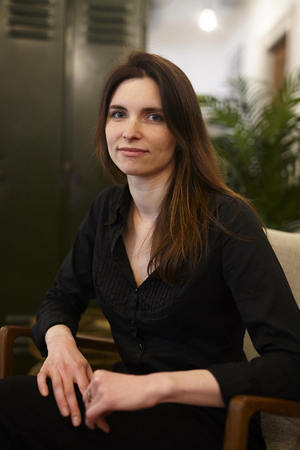
Rusné Šileryté
r.sileryte@tudelft.nl
Rusné Šileryté is a PhD researcher at the Chair of Environmental Technology and Design in Delft University of Technology. Her PhD research has been closely related to the REPAiR project and focused on the changing material flows due to the (desired) transition towards a circular economy and assessing how significant are the impacts of these changes in light of the set city, national or international targets. During the 4 years of the project she has significantly contributed to developing the Geodesign Decision Support Environment and is currently running a spin-off company geoFluxus that aims to upscale the web application into an open source software for material flow data analysis, policy feedback and secondary material exchange.
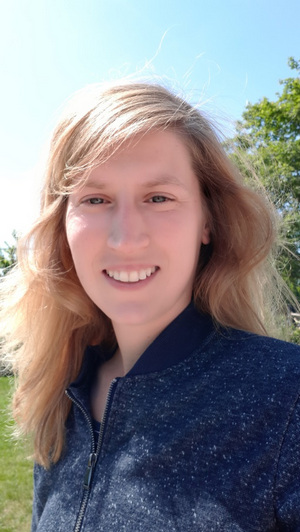
Sue Ellen Taelman
Sue Ellen Taelman is an environmental engineer, graduated in 2012 at Ghent University. She started a PhD career at the faculty of bio-science engineering in the research group Sustainable Systems Engineering, with focus on a quantitative assessment of the sustainability of multiple types of algae cultivation and processing systems, performed in the context of an European Interreg project and a Flemish one. As a continuation of Sue Ellen Taelman’s scientific career, in 2016 she started to work on the H2020 project REPAiR as leader of the work package dealing with sustainability assessment of (peri-)urban waste management systems where a novel framework has been developed and applied to multiple European cities.
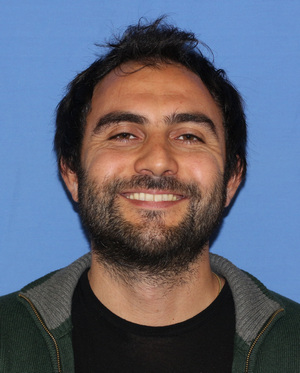
Davide Tonini
Davide Tonini is an environmental engineer, graduated in 2009 at Padova University, Italy. He holds a PhD on sustainability assessment of waste and biomass management from the faculty of environmental engineering at Technical University of Denmark (DTU) (2012). After spending several years as researcher and lecturer, in 2017 he joined the Joint Research Centre (JRC) of the European Commission where he supports the Commission in a number of projects related to assessment of circular economy solutions and policy. Among the others, the plastic strategy, construction and demolition waste, organic fertilisers, and food waste.
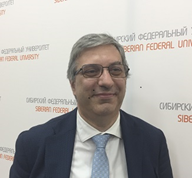
Pasquale De Toro
Architect, PhD in “Evaluation Methods for the Integrated Conservation of Architectural, Urban and Environmental Heritage”, he is associate professor of Environmental Assessment and Evaluation at the Department of Architecture (DiARC), University of Naples “Federico II”, Italy. Director of the Interdepartmental Research Centre in Urban Planning “Alberto Calza Bini” and Associate Professor at CNR-IRISS (Italian National Council of Research). He carries out research activities in the field of Decision Support Systems in the architectural, urban and environmental fields, and in particular on the integration between economic and multi-criteria evaluation methods and tools. He also deals with the elaboration of integrated multi-dimensional evaluation approaches using Geographic Information Systems (GIS) to support decisions at urban and territorial scale (urban metabolism, real estate market, interaction between city and port areas, ecosystem services, etc.).
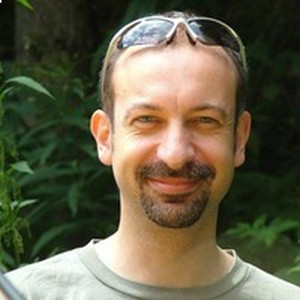
Viktor Varjú
Viktor Varjú (PhD) is a senior research fellow at KRTK Institute for Regional Studies. He holds a PhD in Earth Sciences and master’s degrees in geography and sociology. His main research areas are social aspects of regional development, renewable energy, circular economy and other environmental-related topics, participating in international and cross-border projects, leading the Hungarian team.. He has published on environmental sociology and environmental policy integration in regional and spatial development.
Within the REPAiR project, Viktor Varjú is a leader of Work Package 7 on Knowledge Transfer and Co-Creation with a close cooperation with Marcin Dąbrowski. He is the leader of the PULL in Pécs (Hungary) and the Hungarian Team as well.
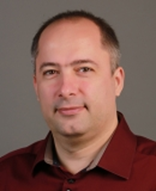
Csaba Vér
Csaba Vér is research assistant at the Faculty of Engineering and Information Technology of the University of Pécs (UoP, Hungary), member of the Smart City Technologies research group. He has more than twenty years of experience in municipal solid waste management, as well as in sustainability related R&D and educational project management. He has been teaching waste management at the UoP for 15 years. He is responsible for all Fuel-Cell and Hydrogen related educational and research initiatives of the Faculty of Engineering and Information Technology. Csaba was the scientific coordinator of UoP and BIOKOM in two H2020 (REPAiR and SMARTGROUND) projects and in other international cooperations. Co-author of a patent registered in the EU and USA. More info: https://www.researchgate.net/profile/Csaba-Ver

Federica Vingelli
Federica Vingelli has a master’s degree in Urbanism and landscape planning. Graduated in 2017 at University of Naples ‘Federico II’ (Italy) with a research thesis on the impact of cruise tourism on port cities, she spent one year working as a landscape architect in Hamburg, Germany. Back in Naples, she joins the REPAiR project as an expert in Geographic Information Systems (GIS) used to support urban and peri-urban analysis, planning and design.
She is currently a PhD candidate in Urban Planning and Evaluation at University of Naples and teaching assistant in urban planning courses both at the Architecture Department and at the Detention District of Naples. Current researches deal with the metabolism of landscape and peri-urban regeneration processes.
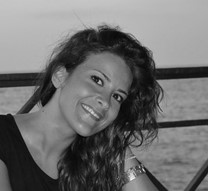
Valentina Vittiglio
DADI – Department of Architecture and Industrial Design – University of Campania “Luigi Vanvitelli”
valentina.vittiglio@unina.it
valentina.vittiglio@unicampania.it
Valentina Vittiglio is an Architect and Ph.D. in Urban Planning and Evaluation at the Department of Architecture of the University of Naples ‘Federico II’ with a thesis focused on environmental contamination issues of fragile urban contexts through an interdisciplinary research internalised in the Urban Living Lab methodology. She contributes to the European research project REPAiR. She has been a guest researcher at TU Delft University. She carried out an internship with the ERM deepening her interest in the remediation of polluted soil and water, sustainability and nature based solutions. In 2021 she is a research fellow at DADI working on a research project entitled PURE | Productive and Urban metabolism Resources. Eco-solutions for new lands, which experiments eco-innovative methodologies and practices to rethink the role of large industrial areas in urban and suburban regeneration processes. She is currently a teaching assistant in urban planning course at the Department of Architecture and Industrial Design.

